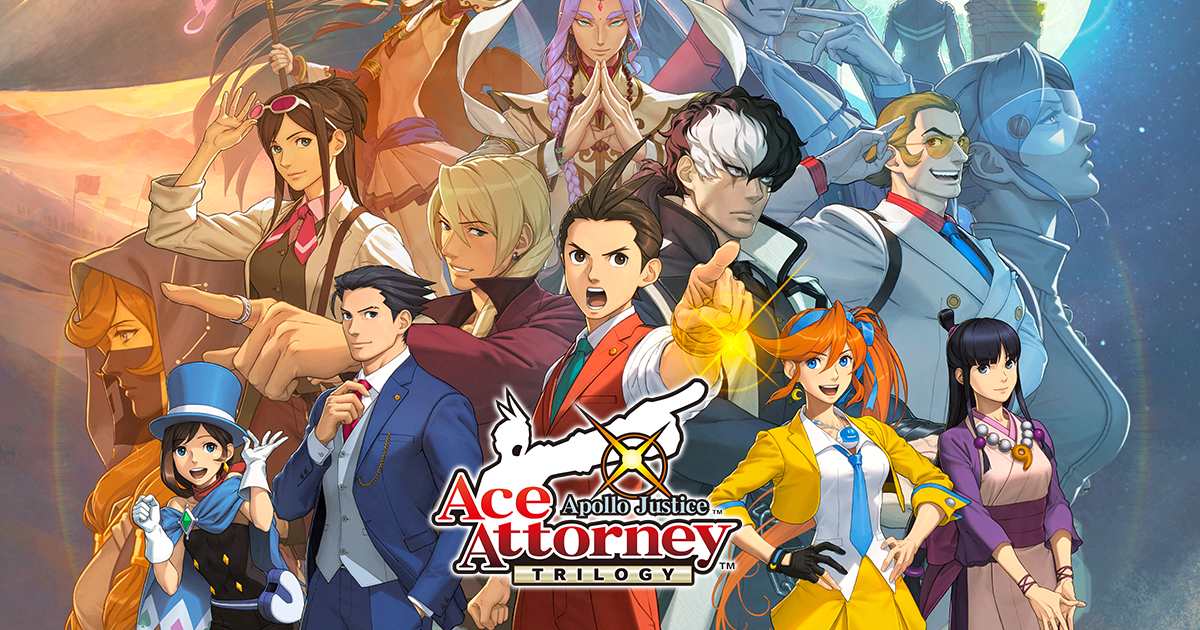As I am wont to do with some of my pieces, I add a little disclaimer in from time to time. Usually it’s meant as a “Don’t come for me in the comments” shield, which rarely holds. However, in this instance, it’s justified: I’ve never played a Phoenix Wright game, let alone an Apollo Justice one. I know, sue me.
What this does mean, on the flip(?) side, is that this preview will be from someone unbiased, looking at this sequel-trilogy pack with a fresh perspective and bare understanding of why yelling “Objection!” is a big deal in them. Definitely not because I misread the assignment.
With that in mind, this fresh-faced intern is getting a deep-end lesson in the world of courts, criminals and… I dunno, probably fantasy elements through the Capcom lens. So let’s overrule my trepidation, and see how Apollo Justice, and then his predecessor for the other two games, fare in bizarre world of courtroom drama.
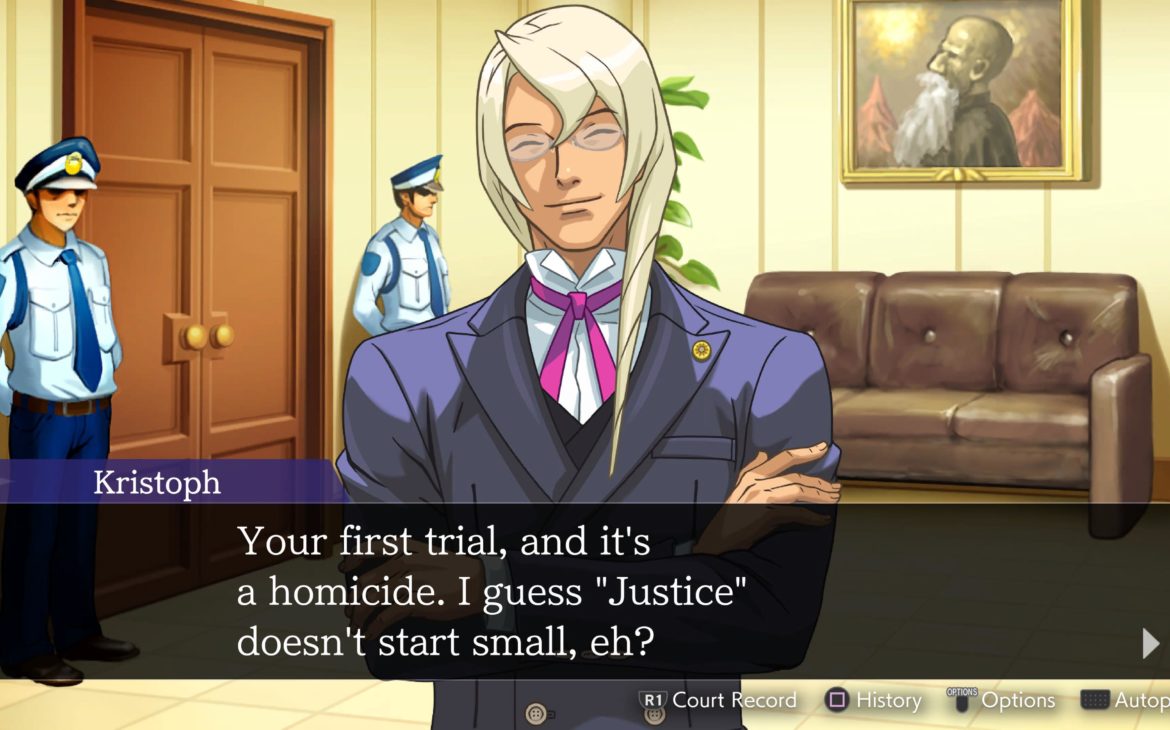
Throw The Text At Him!
One thing I did know about the Ace Attorney games, and you might too, is that they are extremely wordy. As in, text-based courtroom drama is the absolute bread and butter here.
Thinking about it, it seems odd that a game so text-heavy would be initially released on a predominantly on-the-go, portable console, but it worked. But this isn’t just one liners, this is paragraphs. This is speech upon speech about even the most miniscule detail. Which I suppose is credit to Capcom, as it is in Ghost Trick, that all the little things are thought out.
So, if you’re not a fan of reading, this is your warning, your disclaimer, that you probably won’t like it. But then, as with me and rogue games, you may find yourself pleasantly surprised by what goes on in these games.
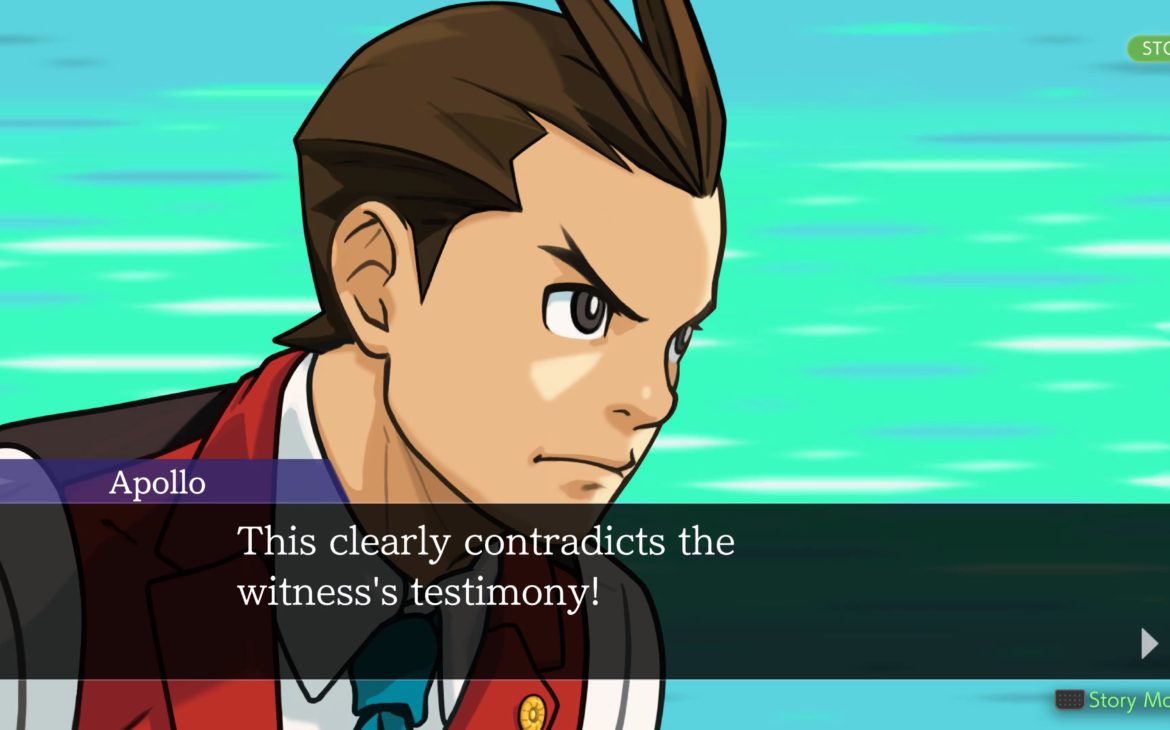
J’Accuse!
It’s hard to write a plot summary about the Ace Attorney games without spoiling. Not out of laziness (well, mostly), but because the story is so integral that to give anything away ruins potential cases. Fortunately, what I’m about to describe doesn’t spoil much, nor really give anything away about the previous games.
Young apprentice Apollo’s adventure begins by defending none other than previous protagonist, Phoenix Wright, on trial for murder. Yes, as far as openers go, it’s pretty attention-grabbing. A poker game gone awry, a potential scuffle… it bares all the hallmarks of a textbook murder case.
But those who know, and for me who finally understands how bonkers these games are, it’s anything but simple. To give more away would ruin the fun of discovery, but I will analogise with this: it’s as if a whole bunch of Saturday morning cartoons, adult swim and innuendo-filled jokes had a three-way pile up. Or, in brief, peak Capcom.
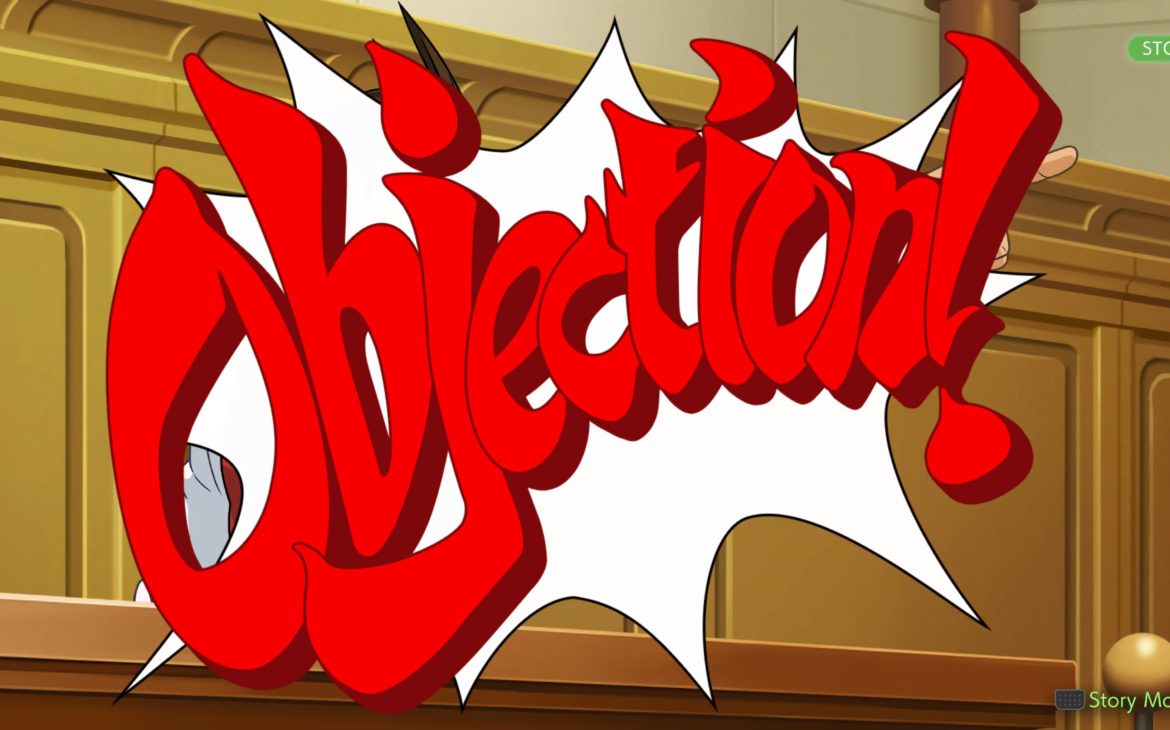
Good Apollo, Where Should I Begin…?
Moving on from not spoiling the story, let’s instead look at how Apollo Justice games play. Again, if you’ve played the Phoenix Wright games, you can file this under “pretty much the same” and head down to the conclusion of the preview. Given that Apollo only fronts the first game, it’s going to feel like an interim before it reverts to the Wright way.
Anyway, as mentioned, a lot of this game is text and deduction. Players are presented with witnesses, will listen to their testimonies, before then deciding if they’re telling the truth. But rather than the L.A Noire method of flat-out calling someone a liar, instead logic and contradicting items must be used instead.
So, say a witness has about five separate statements, players can object to those and present something to catch them out. It’s definitely a deduction game, made harder with the static images and no voice inflection to catch them out. From this, Apollo will then have to make deductions as conclusive/indicting persecutions.
Now, this wasn’t my cup of tea, per se. But that isn’t to say it was boring, and thankfully Capcom have added some modern tweaks to help newbies like me out.
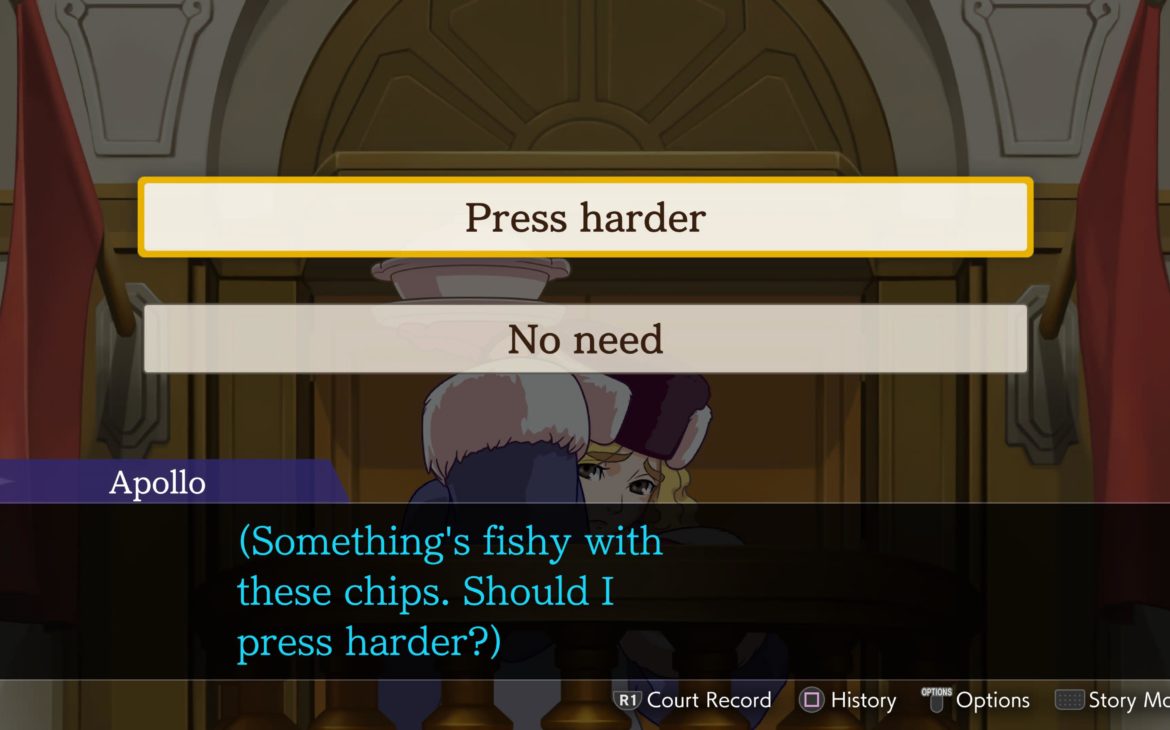
Let Drama Unfold
When it comes to ports, remasters and such, it’s nice to have modern sensibilities added to make life easier. Save states, better accessibility options and the like, all to make things easier. Fortunately, Apollo Justice has two that really stand out. First, there’s Autoplay, which moves dialogue on without constantly having to hammer the X button.
Secondly, and this was my personal favourite, is Story Mode. This is an improvement over Autoplay because, and I will justify this; it plays the game for you. There’s no hyperbole there either, it will quite literally play the game out for you, choosing the correct piece of evidence and picking the correct conclusion.
Does that sound like a massive copout, no different than reviewing a YouTube video or stealing someone else’s content? To the pedants, yes, but to me it was perfect. I was still invested with what was going on, I just didn’t want to sit there pressing X constantly. And yes, whilst it does pick the correct answer, one can easily switch between Story and player-controlled with one button.
So there were times I’d use my own noodle, and if I got stumped, I’d let the game do it. It’s no different than looking online for the solution, the game just has it built in to streamline it for you. Don’t come at me with ethics, I thought this was a valuable tool for those that just want to see the story unfold without resistance.
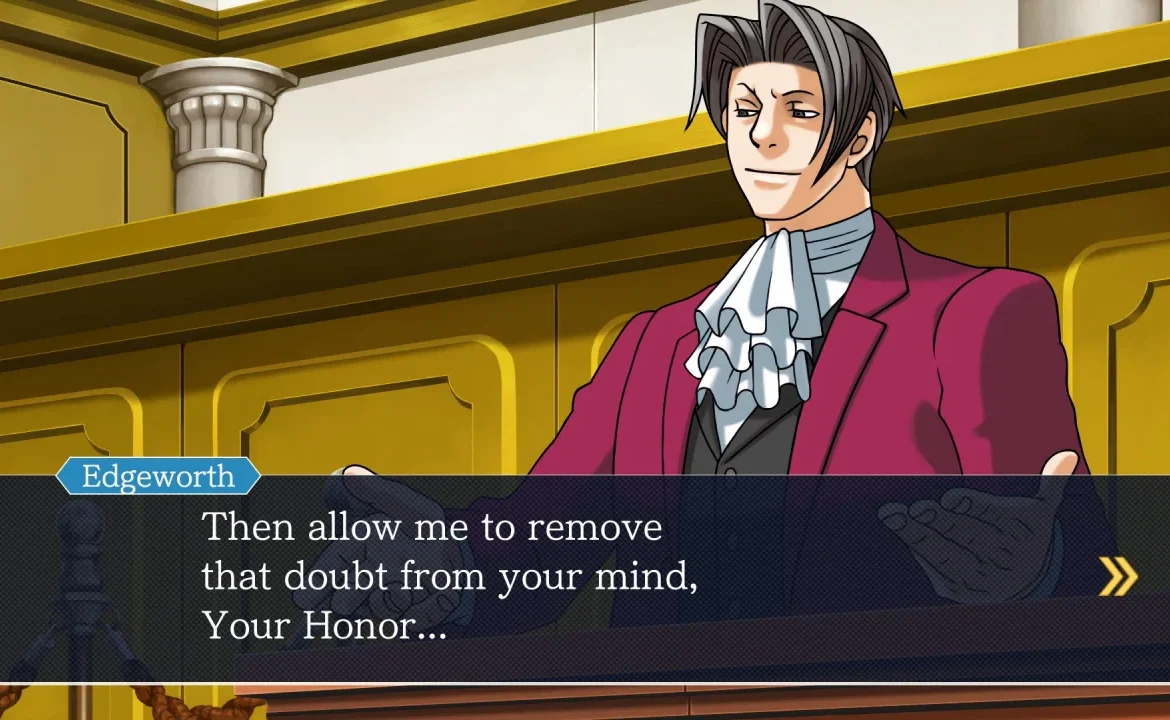
Pressed Suits and Gravity-Defying Hairstyles
My own anecdotal experience aside, one of the other burning questions surely is how a 3DS game looks on a PlayStation 4 (or PS5, in my case). There are ports that are badly formatted, with pixels designed for handheld devices stretched to absurd lengths on home TV’s.
Fortunately, the Apollo Justice trilogy (still weird it’s called that) has been ported properly. Unlike Ghost Trick, and this isn’t a slight, this has been made to accomodate modern TV’s, There’s no faux-3DS style screen boxes, instead as if made to be console-specific.
In terms of each game’s presentation, graphics are as crisp and sharp as one would expect a 2D game to be. Colours pop, characters are equally bright and daft in whatever stereotypical outfit they’re in (that’ll make sense when you play it).
The audio’s been reworked for stereo too, instead of tiny, handheld blips and tunes. I did jump the first time I heard an “Objection!” though, so kudos to Capcom for keeping me invested and not nodding off.
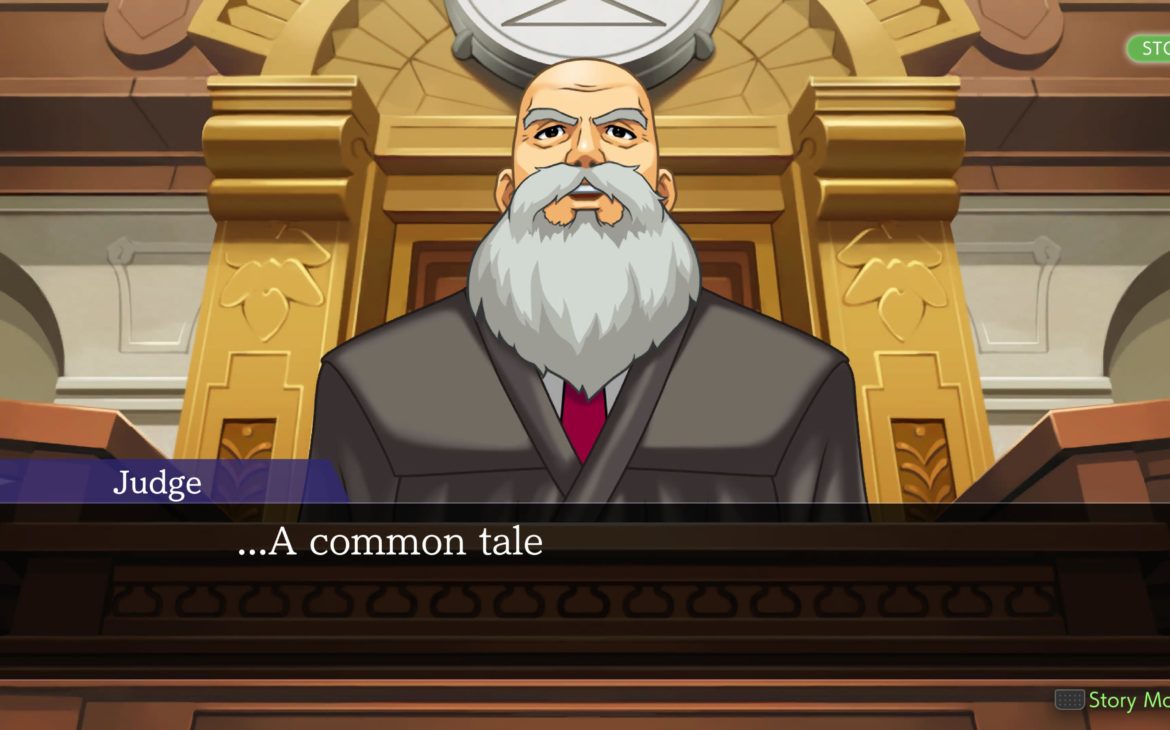
In Session
To conclude, or adjourn, or whatever courts do in the real world, Apollo Justice gets a guilty verdict from me. That is, guilty of being weird, wonderful and equally wacky from Capcom. Again, that’s not unexpected. When they’re not rebooting Resident Evil and Devil May Cry, they try their hand at something different.
As I said, these games didn’t hold my interest on release. The only Phoenix Wright I’d played was the one in Marvel vs. Capcom, not in a courtroom. So for me going in blind, I had a decent time getting my head around logic that’s up there with some of LucasArts’ weirdest.
However, Apollo Justice/Phoenix Wright games are a hard sell to people who have never heard of them. L.A Noire I can recommend enough times, but this is a bit more niche. Because it’s so text-heavy, that’s what you have to lead with, then gauge a reaction from there.
Now, given that these were sent as a preview copy, we don’t know yet if Capcom are adding any more quality of life or accessibility options to make it more welcoming. As it stands, my preview reads like an early review, without giving away too much. Perhaps we’ll see if anything changes between now and its full launch.
Apollo Justice: Ace Attorney Trilogy is available from January 25th 2024 on PlayStation 4 (preview platform), Xbox One, Nintendo Switch and PC via Steam.
Developer: Capcom
Publisher: Capcom
Disclaimer: In order to complete this preview, we were provided with a promotional copy of the game. For our full review policy, please go here.
If you enjoyed this article or any more of our content, please consider our Patreon.
Make sure to follow Finger Guns on our social channels –Twitter, Facebook, Twitch, Spotify or Apple Podcasts – to keep up to date on our news, reviews and features.
